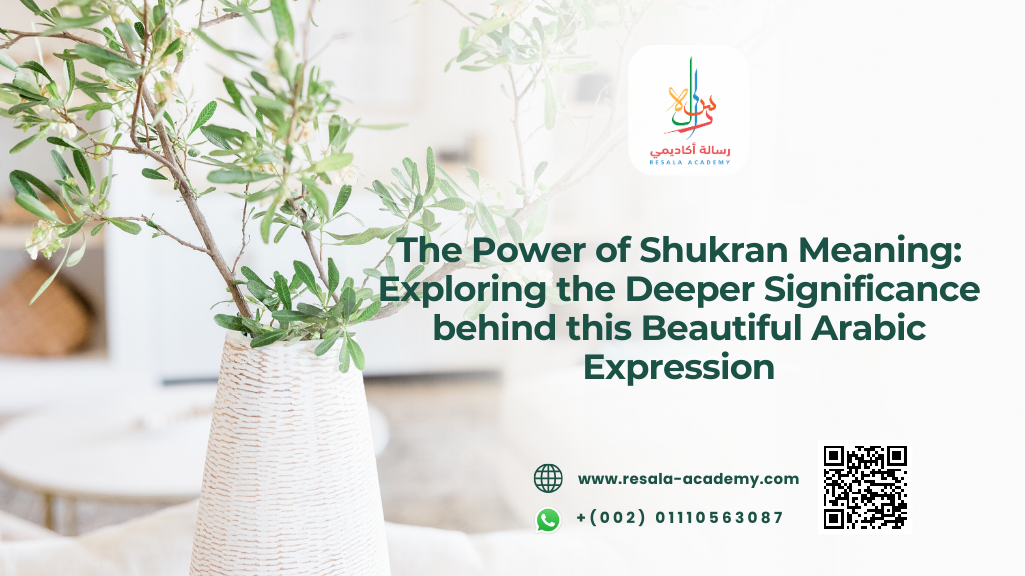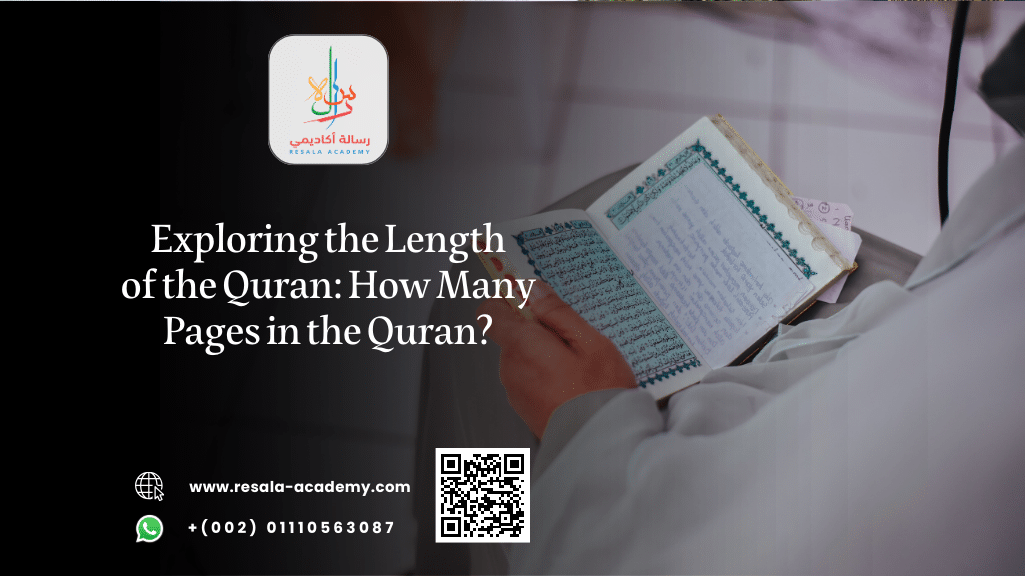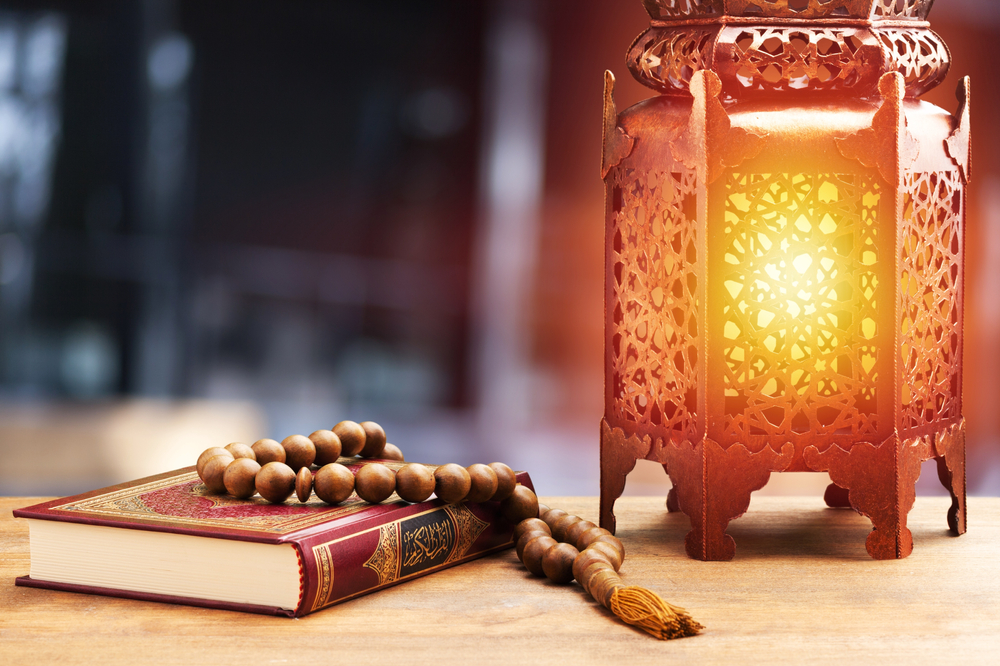Table of Contents
The Power of Shukran Meaning: Exploring the Deeper Significance Behind this Beautiful Arabic Expression
Are you ready to unlock the power of gratitude? Imagine a single word that can transcend language barriers, unite people from different cultures, and bring joy to both the giver and the receiver. Enter “shukran” – a beautiful Arabic expression that holds a deeper significance than meets the eye.
In this blog post, we will delve into Shukran Meaning and explore its benefits, cultural significance, and how it can be used in various contexts. So get ready to embark on a journey filled with appreciation as we uncover the power behind this enchanting word!
Shukran Meaning In Arabic?
When it comes to expressing gratitude in Arabic, there’s no word quite as enchanting and powerful as “shukran”. Derived from the root verb “shakara”, meaning “to thank”, this simple yet profound expression carries a world of meaning within its syllables.
At its core, “shukran” translates to “thank you” in English. But what sets it apart is the depth and sincerity behind those two words. It goes beyond a mere polite gesture; rather, it embodies a heartfelt appreciation for someone or something. Whether you’re thanking a friend for their kindness or expressing gratitude towards the universe itself, saying “shukran” adds an extra layer of warmth and authenticity.
But wait! The power of Shukran doesn’t stop there. It holds a deeper significance that can be felt on both personal and cultural levels. In Arabic-speaking countries, saying “shukran” is not only seen as good manners but also reflects one’s character and values. It showcases humility, and respect, and acknowledges the importance of reciprocity in relationships.
Moreover, using shukran allows us to cultivate an attitude of gratitude in our daily lives. By acknowledging even the smallest acts of kindness or blessings we receive, we open ourselves up to experiencing more joy and contentment. It reminds us that every person we encounter plays a role in shaping our journey.
So whether you find yourself strolling through bustling markets in Morocco or sipping aromatic tea with locals in Egypt, don’t forget to sprinkle your conversations with heartfelt shukrans – because gratitude truly knows no bounds!
The Benefits of Saying “Shukran” (شكراً)
The Benefits of Saying “Shukran” (شكراً)
Expressing gratitude is a universal language that transcends cultural barriers. In the Arabic-speaking world, one powerful and beautiful way to convey thanks is by saying “shukran” (شكراً). This simple word holds deep significance and carries numerous benefits. Here are five reasons why incorporating “shukran” into your vocabulary can bring positivity into your life:
1. Cultivate meaningful connections: When you say “shukran,” you acknowledge someone’s kindness or assistance, fostering a sense of appreciation and respect. It strengthens relationships, whether with friends, family members, colleagues, or even strangers.
2. Spread joy and positivity: A heartfelt “shukran” has the power to brighten someone’s day. By expressing gratitude sincerely and regularly, you create a ripple effect of happiness in both yourself and those around you.
3. Enhance emotional well-being: Gratitude has been scientifically proven to improve mental health by reducing stress levels and increasing feelings of contentment. Saying “shukran” allows you to tap into this powerful emotion daily.
4. Foster humility: Uttering “shukran” humbles us by reminding us that we rely on others for support and guidance at times in our lives. It encourages us to appreciate the efforts made on our behalf.
5. Strengthen cultural understanding: Learning different languages helps bridge gaps between cultures while also promoting empathy and understanding among diverse communities worldwide.
Incorporating the word “shukran” into your vocabulary not only enriches your interactions but also brings about positive change within yourself and society as a whole!
How to Use Shukran (شكراً) in Different Contexts
You’ve probably heard the word “shukran” before, but do you know how to use it in different contexts? This beautiful Arabic expression is more than just a simple thank you. Let’s explore how to use “shukran” in different situations!
1. Gratitude for a Gift: Imagine someone gives you a thoughtful present. Instead of just saying thank you, take it up a notch and say, “Shukran jazeelan!” This translates to “Thank you very much!” It shows your genuine appreciation and gratitude.
2. Expressing Thanks for Help: When someone goes out of their way to assist you, show your gratitude by saying, “Shukran lak!” which means “Thank you to you!” It acknowledges their effort and lets them know that their help made a difference.
3. Appreciating Hospitality: If someone invites you into their home or offers hospitality, respond with warmth by saying, “Shukran ala tawfeekik,” meaning “Thank you for your generosity.” It demonstrates respect and gratitude towards the host’s kindness.
4. Saying Thank You Professionally: In formal settings like business meetings or conferences, opt for a professional tone while expressing thanks. Use phrases like “Shukran ‘ala ta’awunak,” which means “Thank you for your cooperation.” It maintains professionalism while acknowledging others’ contributions.
5. Showing General Gratitude: Sometimes we want to express our overall appreciation without referencing any specific act or favor received. In such instances, simply say “Shukran,” conveying heartfelt thanks without attaching it to anything specific.
Using shukran in these various contexts allows us to express our gratitude sincerely and respectfully in different situations! So whether it’s receiving gifts or showing general appreciation – remember the power of shukran!
The Cultural Significance of Shukran in Arabic-speaking Countries
The cultural significance of “Shukran” in Arabic-speaking countries runs deep, reflecting the values and traditions held dear by these vibrant cultures. This beautiful expression of gratitude goes beyond mere politeness; it is a way of acknowledging the interconnectedness and generosity that permeates Arab societies.
In these countries, expressing gratitude through “Shukran” is not just a formality but an essential part of daily life. It reflects the strong sense of community and hospitality that characterizes Arab culture. From offering thanks for a simple act of kindness to expressing appreciation for grand gestures, saying “Shukran” allows individuals to foster meaningful connections with others.
Furthermore, “Shukran” has spiritual connotations as well. In Islamic tradition, expressing gratitude is seen as an important aspect of faith. Muslims believe that showing thankfulness can bring blessings into their lives and strengthen their relationship with God. Therefore, using “Shukran” becomes more than just polite manners; it becomes an act rooted in religious devotion.
Moreover, the use of “Shukran” extends beyond interpersonal interactions to include expressions of gratitude towards nature and even inanimate objects. This practice highlights the reverence Arabs have for all forms of creation and nurtures a sense of harmony between humans and their surroundings.
Additionally, understanding the cultural significance behind “Shukran” helps outsiders navigate social situations when visiting Arabic-speaking countries. Embracing this expression allows travelers to show respect for local customs while also forging genuine connections with locals during their stay.
Recognizing the cultural significance behind Shukran provides deeper insight into Arab society’s core values: community bonds, spirituality, gratitude towards both people and nature alike—the essence of Arabic culture encapsulated in one powerful word – Shukran!
How to Say Shukran in Different Dialects of Arabic
Shukran, شكراً, is a beautiful Arabic expression that carries immense gratitude and appreciation. While it is widely used across different Arabic-speaking countries, it can vary in pronunciation and form depending on the dialect. Here’s how to say Shukran in different dialects of Arabic:
1. Egyptian Dialect: In Egypt, you would express your thanks by saying “Shokran” (شكرا). The ‘r’ sound at the end is pronounced subtly.
2. Levantine Dialect: In Lebanon, Syria, Jordan, and Palestine, you would say “Shukran” (شكراً) just like in Modern Standard Arabic (MSA), but with a slightly softer pronunciation.
3. Gulf Dialect: In the Gulf region including Saudi Arabia, Kuwait, Qatar, Bahrain, Oman, and UAE among others; people commonly use “Shukraan” (شُچْڔَانْ) to express their gratitude.
4. Moroccan Dialect: In Morocco where they speak Moroccan Arabic or Darija، people say “Choukran” (شكرا).
5. Tunisian Dialect: In Tunisia where Tunisian Arabic is spoken، people express their thanks by saying “Merci” which has been borrowed from French due to historical influence.
These variations highlight the richness and diversity of the Arab culture and its linguistic expressions of gratitude. Whether you’re traveling throughout Arab-speaking countries or conversing with native speakers from different regions online; knowing how to say Shukran in various dialects will help you connect on a deeper level and show respect for local customs.
So next time someone does something kind for you or offers assistance when learning about Arab cultures firsthand; remember these diverse ways to express your heartfelt appreciation!
Resala Academy Offers Online Arabic Classes
Looking to learn Arabic and unlock a world of cultural richness? Look no further than Resala Academy, your go-to destination for online Arabic classes! With its expert instructors and innovative teaching methods, Resala Academy offers an immersive learning experience that will have you speaking this beautiful language with confidence in no time.
At Resala Academy, they understand the importance of flexibility in today’s fast-paced world. That’s why they offer online Arabic classes that fit seamlessly into your busy schedule. Whether you’re a beginner or already have some knowledge of the language, their courses cater to all levels, ensuring personalized learning for every student.
With Resala Academy’s experienced instructors, you can rest assured that you’re getting a top-notch education. Their passionate teachers are dedicated to helping students master Arabic through interactive lessons and meaningful practice exercises. You’ll receive individual attention and constructive feedback throughout your language journey.
One of the unique aspects of Resala Academy is its focus on cultural immersion alongside language learning. In addition to teaching vocabulary and grammar, their courses delve into the rich history and traditions associated with Arabic-speaking countries. This holistic approach not only enhances your understanding of the language but also broadens your cultural horizons.
Joining Resala Academy means joining a vibrant community of learners from around the globe. Through virtual classrooms and collaborative activities, you’ll have opportunities to engage with fellow students who share your passion for mastering Arabic. It’s more than just an educational institution – it’s a supportive network that fosters growth and connections.
Ready to embark on an exciting journey into the world of Arabic? Don’t miss out on what Resala Academy has to offer! Sign up for their online classes today and open doors to new opportunities while immersing yourself in one of humanity’s most captivating languages.
FAQs
1. What does Shukran meaning in Arabic?
“Shukran” is an Arabic expression that means “thank you.” It is a powerful word that carries deep gratitude and appreciation.
2. What are the benefits of saying “Shukran”?
– Expressing gratitude: Saying “Shukran” allows us to show our appreciation for someone’s kindness or assistance.
– Building connections: By expressing gratitude, we strengthen our relationships with others and create a positive atmosphere.
– Spreading positivity: The simple act of saying “Shukran” can bring joy to both the giver and receiver, fostering happiness all around.
– Cultivating humility: Recognizing and acknowledging the help we receive helps us stay grounded, humble, and grateful for what we have.
– Promoting empathy: When we say “Shukran,” it also reminds us to be mindful of others’ needs, leading to acts of kindness ourselves.
3. How can I use Shukran in different contexts?
– Everyday interactions: Use “Shukran” when someone does something nice or helpful for you in your daily life.
Example: If someone holds the door open for you, you can say “Shukran.”
– Formal situations: In more formal settings like meetings or gatherings, showing appreciation by saying “شكراً جزيلاً” (shokrān jazīlan) meaning “thank you very much” would be appropriate.
4. What is the cultural significance of Shukran in Arabic-speaking countries?
In Arab culture, expressing gratitude through words such as “Shukran” is highly valued. It reflects politeness and respect towards others. This expression plays a significant role not only in personal interactions but also in business transactions and social exchanges.
5. How do I say Shurkan in different dialects of Arabic?
While there may be some variations, here are a few ways to say “Shukran” in different Arabic dialects:
– Egyptian Arabic: “Shukran” or “shokran”
– Levantine Arabic: “Shukran” or “shukrān ʿalēk” (thank you to a male) or “shukrān ʿalayki” (thank you to a female)
– Gulf Arabic: “Shukran” or “shūkrīya”
– Moroccan Arabic: “Saha” or “Choukran”
Conclusion
In the beautiful Arabic language, the word “shukran” holds incredible power and significance. It goes beyond a simple expression of gratitude; it is a reflection of culture, respect, and deep appreciation. Saying “shukran” not only shows your gratitude but also allows you to connect with Arabic-speaking communities in meaningful ways.
By understanding the meaning of “shukran,” we can unlock its benefits and use it appropriately in various contexts. Whether you’re traveling to an Arabic-speaking country or simply want to express your thanks to someone from that culture, knowing how to say “shukran” will undoubtedly leave a lasting impression.
Remember, saying “shukran” is like sprinkling magic into your interactions. It creates positive energy and fosters stronger connections between individuals from different backgrounds. So embrace the power of “shukran,” let it become part of your vocabulary, and watch as doors open for new friendships, experiences, and opportunities.
At Resala Academy, we understand the importance of mastering Arabic language skills for effective communication. That’s why we offer online Arabic classes taught by experienced instructors who are passionate about sharing their knowledge with students around the world. Join us on this journey as we delve deeper into the beauty of the Arabic language and culture.
So go ahead – say “شكراً” (shukran) today! Experience firsthand how this small yet mighty word can make a big difference in your life. Let gratitude be at the core of every interaction you have, regardless of language or cultural barriers.
Shukran for reading our blog post – may positivity and appreciation fill every corner of your world!




